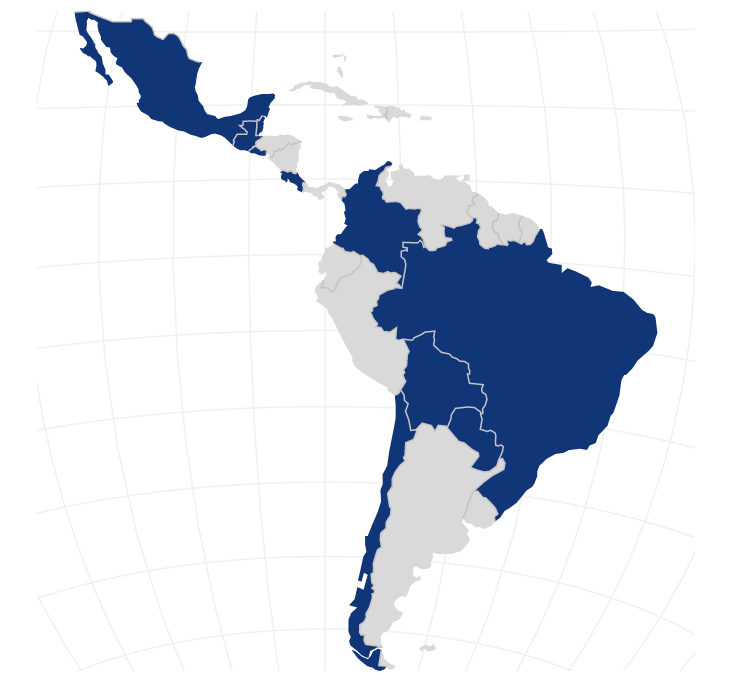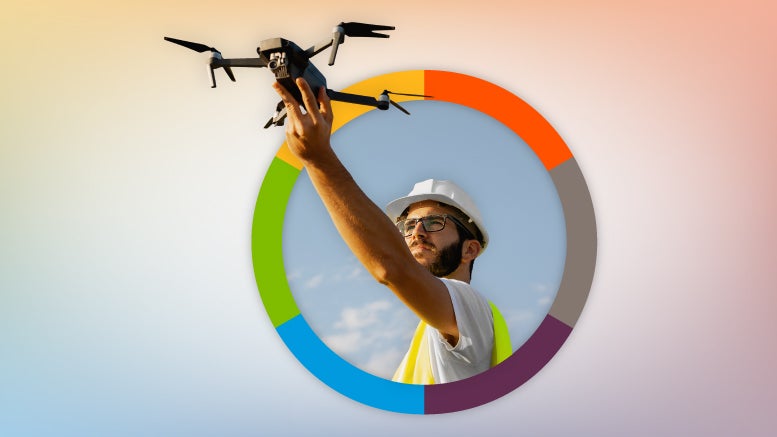As Latin American and Caribbean countries move forward towards a post-pandemic path, attention is focusing once more on the challenges that were already present before the crisis and that were intensified due to COVID-19. Regarding labor and education, one of the challenges is the skill shortages that workers in the region present.
Skills for work are fundamental
Before the pandemic, the situation was already worrisome: more than half of the workers in the region did not have minimum reading comprehension levels, or basic mathematical skills, and only a small proportion (16%) had achieved higher education. The most recent evidence shows that young people, those already in the workforce as well as those seeking to enter it in the next years, will be paying a price due to the pandemic. For example, a recent study shows that the pandemic affected the educational trajectory, anxiety levels, use of time and academic outcomes of young students from higher education in Peru. The pandemic also affected youth competitiveness in the workforce due to lack of abilities. The groups most affected by the loss of employment due to COVID-19 were young people, women, and workers with a lower level of education.
Thus, COVID-19 represents a new, large-scale, challenge for technical education and training systems in Latin America and the Caribbean. These systems, that range from technical education in high school to higher education, including on-the-job training and different types of professional training, are not working properly, as we explained previously in this article. Correcting these issues requires great effort as well as conversations among all participants and stakeholders to make strategic decisions to strengthen worker’s skills ensuring they can grow professionally and improve their work prospects. The good news is that countries in Latin America and the Caribbean are already moving in the right direction.
Inspiring initiatives for the region
With the support and funds from Germany and Switzerland, through the Multidonor Fund for Transformation in Technical and Professional Education (TVET) in Latin America and the Caribbean, the IDB is promoting more than a dozen initiatives in different countries to advance the ambitious project of increasing workers’ employability and their capacity to progress in the professional ladder through investing in building new skills. Projects of the Fund are systemically transforming the TVET ecosystem in LAC through three key channels: increasing private sector participation in all areas, sparking innovation, and ensuring scalability, replicability and/or sustainability of the implemented solutions. These initiatives respond to the main trends to which Technical and Professional Education are faced: The fourth Industrial Revolution, aging population, climate change, diversity and of course, COVID-19.
For example, in Chile artificial intelligence is being used to support people through the changing labor market, guiding them towards employment reconversion, considering their history, potential and interests. In Belize, the project consists in working with local authorities to train people on the so-called Green Skills, necessary for this country to diversify its economy and reduce its dependence on tourism, allowing growth in sectors such as renewable energies. In Colombia, one of the projects receiving these funds is focused on enhancing technical and socio-emotional abilities of teenage mothers to improve their insertion in the labor market. In El Salvador, young people are being trained in e-lancing abilities that will allow them to be employed and compete at a global level through specialized work platforms. In Paraguay, the project is evaluating the effectiveness of using virtual reality in training in the area of mechatronic.
These are just some examples of the efforts that are being made towards the transformation of formative and educational ecosystems, that the region requires to continue firmly recovering after the pandemic.
We invite you to learn more about each initiative by clicking bellow:

Skills for work initiatives in Latin America and the Caribbean
- Belize → Skills to access the green economy
- Bolivia → Virtual platform for agricultural work labor
- Brazil → Modular TVET in digital industries of São Paulo
- Chile → Relink: Intelligent labor reconversion
- Colombia
- Costa Rica
- El Salvador → E-lancing skills in digital work for the digital economy
- Guatemala → Better instructors for virtual scenarios
- Mexico → Technical professional formation for the fourth industrial revolution
- Paraguay → Training in automation processes
Investing in skills for work is a priority for the IDB Group to advance towards an inclusive and sustainable recovery of Latin America and the Caribbean.



Leave a Reply